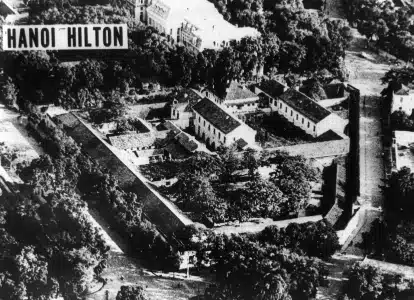In 1972, as the Paris Peace Accords drew to a conclusion, young William Reeder, Jr. was a Captain in the U.S. Army, assigned to an AH-1G Cobra Attack Helicopter in Vietnam. For many servicemen and women, the Vietnam War was over for the U.S. military. Reeder was afraid he missed the opportunity to see combat as a Cobra gunship pilot. The North Vietnamese had other plans, however, and the Easter Offensive changed Reeder’s life forever. On Wednesday, November 15, 2017, Dr. William S. Reeder presented a lecture at the U.S. Army Heritage and Education Center (USAHEC) in Carlisle, Pennsylvania, describing how fighting in the spring of 1972 led to his capture while defending the American base at Ben Het in Vietnam, and how he survived the horrifying ordeal of being a POW in Vietnam. Dr. William Reeder was the last U.S. Army prisoner captured in the Vietnam War, and his story is one of courage, hope, and survival. In 1971, Reeder was already an accomplished pilot, having flown secret missions deep into enemy territory on his first tour. He returned as a helicopter pilot flying a Cobra Attack Helicopter, but believed the Americans had beaten the Viet Cong, and were passing everything to the South Vietnamese Army. As the 1972 Easter Offensive raged several months into his second tour, he was providing support to forces at the besieged base of Ben Het, when his chopper went down in a flaming corkscrew. Reeder survived the crash, and evaded the enemy for three days, before finally being captured and held in jungle cages for weeks. After which, he endured a grueling forced march on the Ho Chi Minh Trail, costing the lives of seven of the POWs in his small group of twenty-seven.

Jim Collins | The Stockdale Paradox
This speech by Jim Collins for The Drucker Institute talks about The Stockdale Paradox, which is rooted in the story of Admiral James Stockdale, who was the highest-ranking United States military officer in the “Hanoi Hilton” prisoner-of-war camp during the height of the Vietnam War





